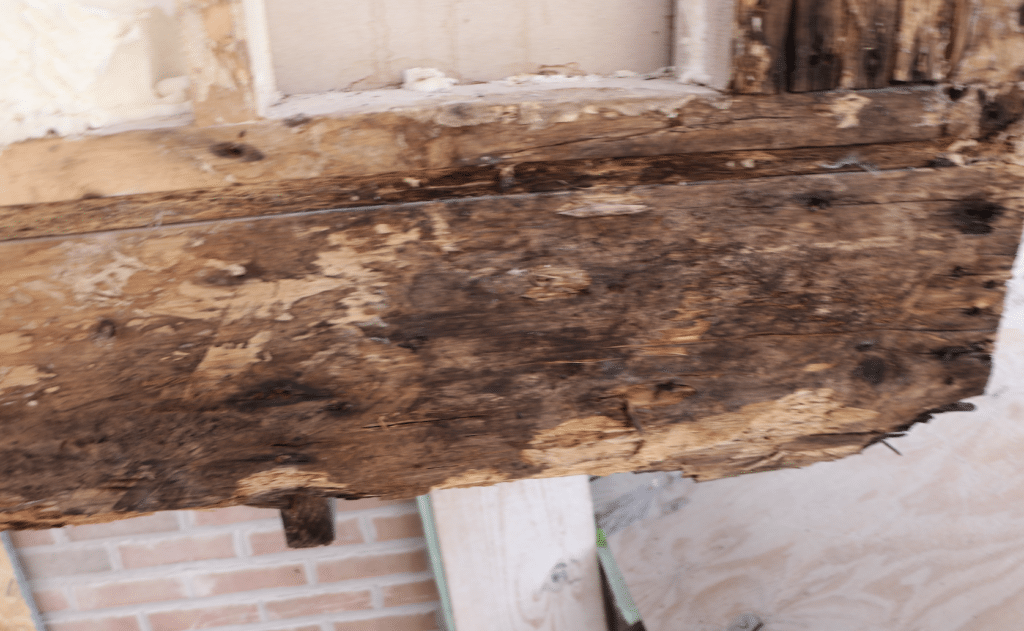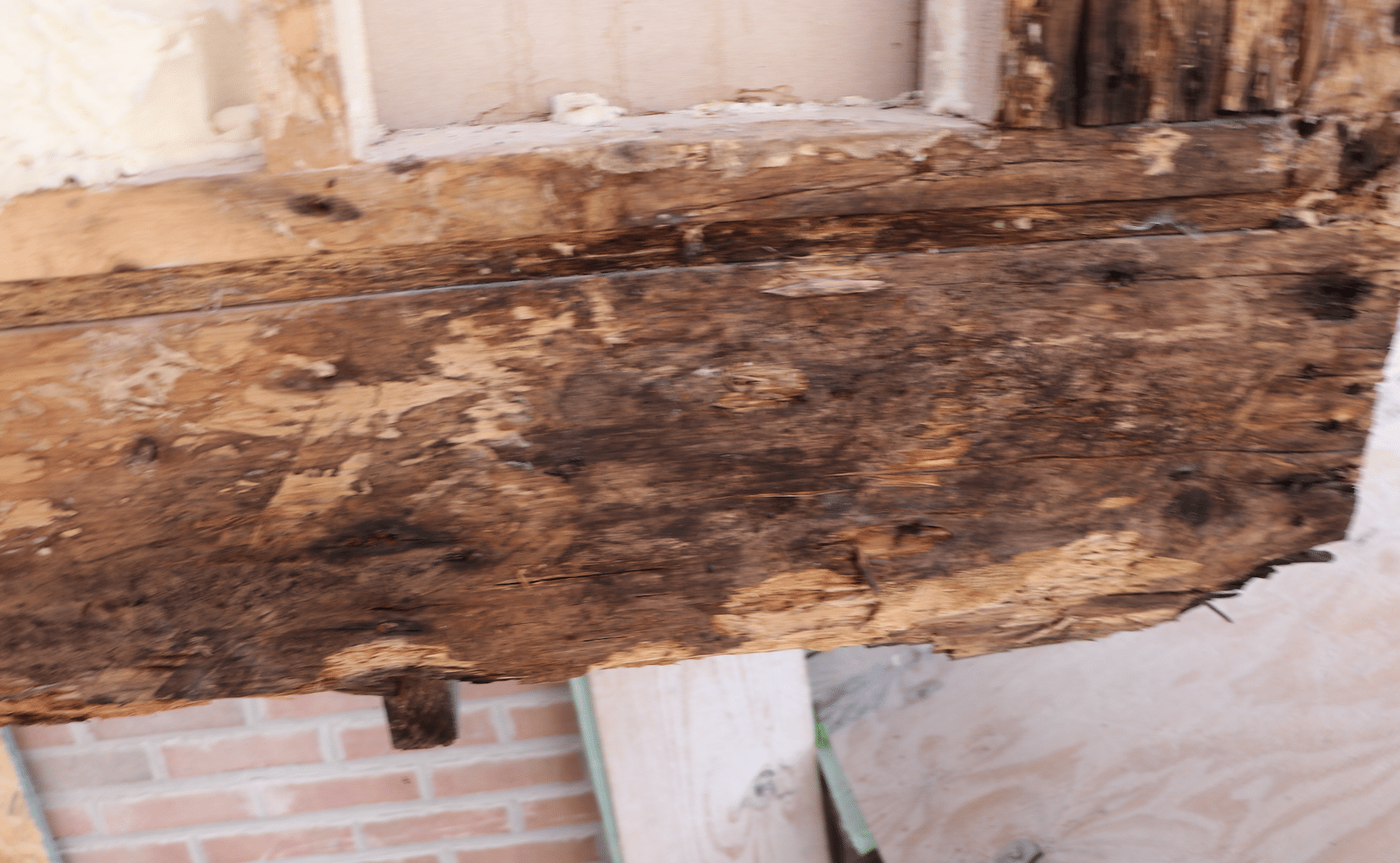
Philadelphia, with its mix of historic charm and modern living, boasts a variety of architectural styles. Among them, stucco systems have been a popular choice for their aesthetic appeal and cost-effectiveness. However, a hidden issue lurks beneath many of these seemingly pristine exteriors: leaking stucco. It’s estimated that a staggering 50% of stucco systems in the Philadelphia area are compromised, leading to moisture intrusion and potentially severe structural damage. In this blog post, we’ll explore the prevalence of this issue, the importance of stucco inspection, and why many homeowners in Philadelphia choose Stucco Safe for their stucco inspection needs.
What is Stucco and How Does it Work?
Stucco is a popular exterior siding material prized for its durability and aesthetic appeal. It is a mixture of water, sand, and cement, applied in multiple layers to create a strong and weather-resistant surface. Stucco can be used to cover a variety of surfaces, including wood, masonry, and insulation. When properly installed, stucco provides a long-lasting and low-maintenance exterior finish. However, if improperly installed or maintained, stucco can be prone to moisture intrusion and structural damages. This makes it crucial for homeowners to ensure their stucco applications are done correctly and inspected regularly.
The Prevalence of Leaking Stucco Systems in Philadelphia
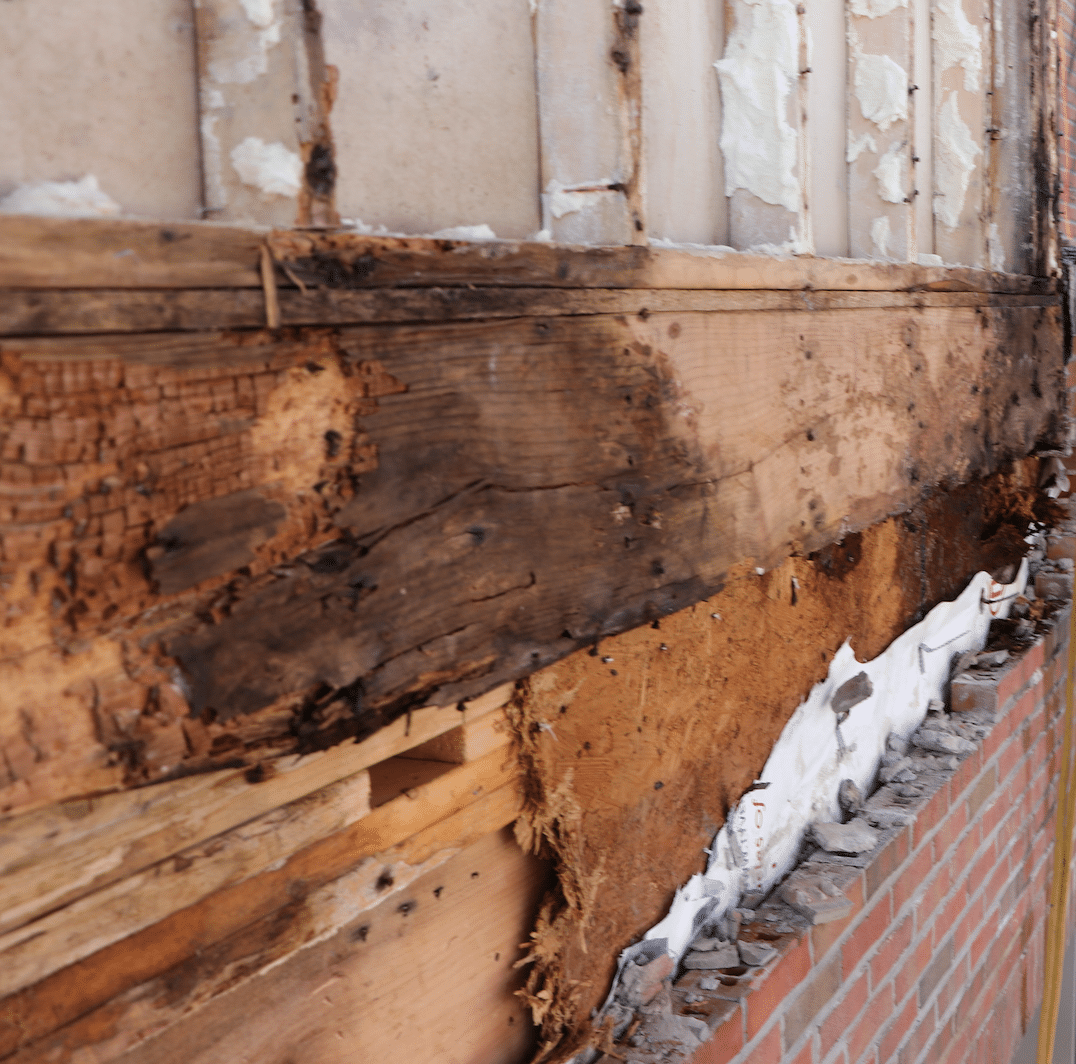
Stucco systems are popular in Philadelphia County for their versatility and ability to complement various architectural styles, from historic row homes to modern suburban constructions. Unfortunately, the region’s climate—characterized by humid summers, cold winters, and frequent rainfall—puts stucco systems to the test. Over time, improper installation, material degradation, and lack of maintenance can result in water penetration.
A study of homes in the Philadelphia area reveals that nearly 50% of stucco systems exhibit some form of leakage. This problem is especially common in homes built or renovated between the 1990s and early 2000s, as many of these properties were constructed during a building boom where quality control sometimes fell short.
How Does Improperly Installed Stucco Fail?
Stucco failures typically stem from:
Improper Installation: Poorly installed stucco lacks the necessary drainage capabilities to direct water away from the home. Missing or inadequate flashing and gaps in the stucco system can allow water to seep in, leading to significant stucco problems.
Material Degradation: Over time, exposure to the elements causes cracks, allowing moisture to penetrate.
Design Flaws: Modern homes often feature complex architectural designs with multiple windows, balconies, and rooflines. These areas are prone to water intrusion if not adequately sealed and flashed.
Neglected Maintenance: Stucco requires periodic inspections and repairs. Homeowners unaware of this may inadvertently allow small issues to escalate.
Once water penetrates the stucco system, it can seep into the underlying layers, causing mold growth, wood rot, and compromised structural integrity.
Causes of Leaking Stucco Systems
Leaking stucco systems can be caused by a variety of factors, including improper installation, poor maintenance, and weather-related damage. Some common causes of leaking stucco systems include:
-
Improperly Installed Flashing and Weatherproofing: Without proper flashing, water can easily penetrate the stucco system.
-
Cracks and Gaps in the Stucco Surface: These can develop over time due to natural wear and tear or poor initial application.
-
Poorly Sealed Joints and Seams: Inadequate sealing can allow water to seep in through joints and seams.
-
Inadequate Drainage and Water Management: Without proper drainage, water can accumulate and cause damage.
-
High Winds and Extreme Weather Conditions: Severe weather can exacerbate existing vulnerabilities in the stucco system.
Understanding these causes can help homeowners take preventative measures and seek timely repairs to avoid extensive damage.
Signs Your Stucco System May Be Leaking
While the only definitive way to determine if your stucco system is leaking is through professional inspection, there are telltale signs that homeowners can look out for:
-
Discoloration: Dark streaks or spots on the surface of the stucco.
-
Cracks: Visible cracks, especially around windows, doors, or where walls meet roofs.
-
Bubbling or Peeling: Areas where the stucco appears to be lifting or separating from the wall.
-
Mold or Mildew: Growth on interior or exterior walls.
-
Damp Interior Walls: Unexplained dampness or peeling paint inside the home.
-
Musty Odors: Persistent odors indicating potential mold growth behind walls.
A visual inspection can help identify these signs early on.
If you notice any of these symptoms, immediate action is necessary to prevent further damage.
The Importance of Stucco Inspection
Given the alarming prevalence of leaking stucco systems in Philadelphia, regular inspections are critical for homeowners. Unlike visible damage, much of the water intrusion occurs behind the surface, making it impossible to detect without specialized equipment and expertise.
A professional stucco inspection involves:
-
Visual Examination: Inspecting the exterior for cracks, gaps, and discoloration.
-
Moisture Testing: Using moisture meters to obtain moisture readings and detect hidden water behind the stucco.
-
Infrared Scanning: Advanced technology to identify areas of trapped moisture.
-
Core Sampling: Extracting small samples to examine the condition of underlying layers.
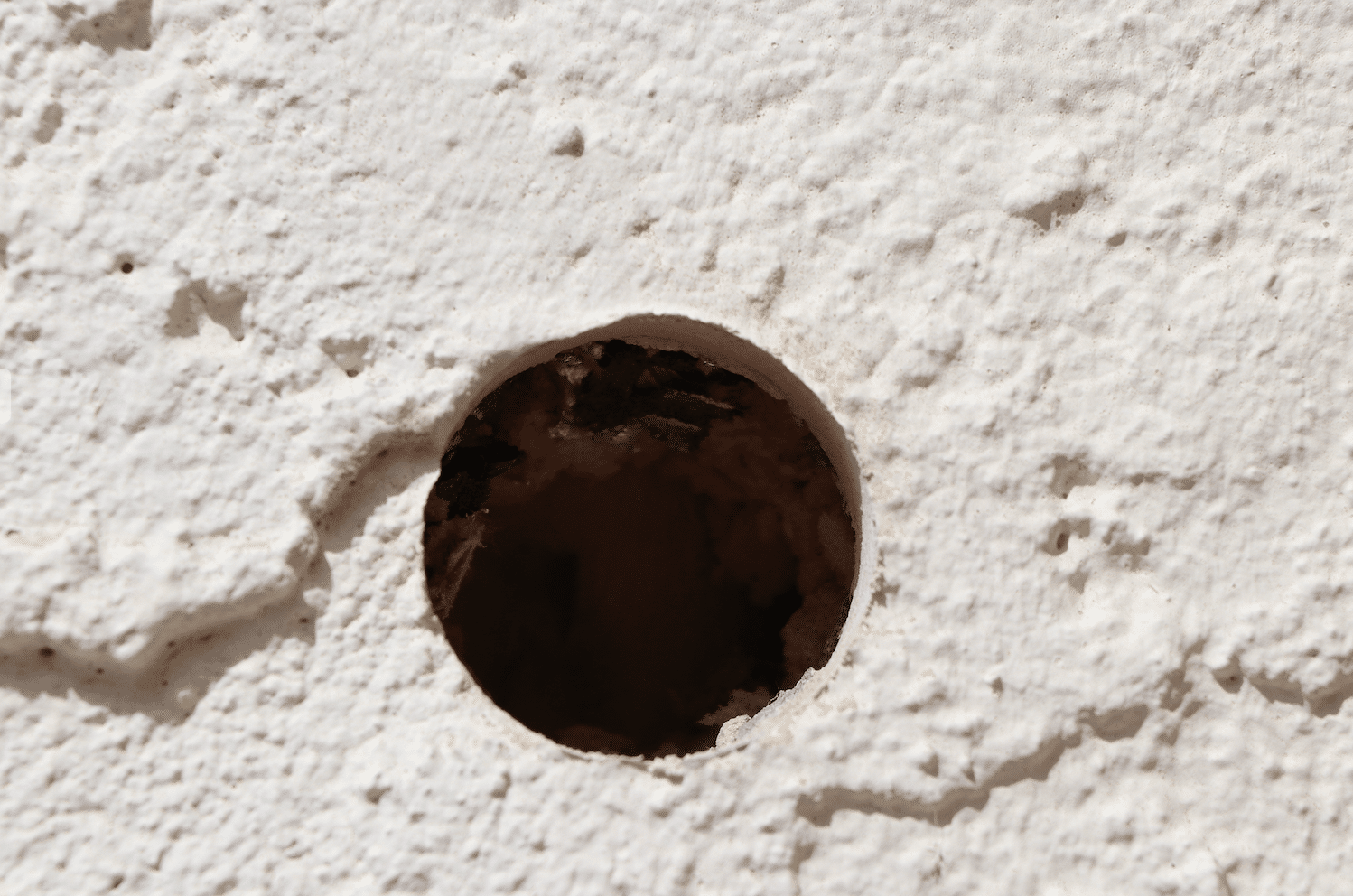
These methods provide a comprehensive assessment of the stucco system’s health and reveal any issues that require attention. Stucco testing specialists play a crucial role in conducting these inspections and ensuring accurate results.
Stucco contractors can provide valuable insights and recommendations based on the inspection findings.
Stucco Inspection Methods
A professional stucco inspection typically involves a combination of visual and invasive testing methods. The inspection process begins with a visual examination of the stucco surface, looking for signs of damage, cracks, and discoloration. The inspector may also use specialized tools, such as a thermal imaging camera, to detect hidden areas of moisture intrusion. Invasive testing methods, such as drilling small holes and inserting a moisture probe, may also be used to detect moisture behind the stucco surface. These comprehensive methods ensure that any potential issues are identified and addressed promptly.
Benefits of Stucco Moisture Testing
Stucco moisture testing is an essential part of any stucco inspection. Moisture testing can help identify potential issues with the stucco system, including moisture intrusion and structural damages. The benefits of stucco moisture testing include:
-
Early Detection of Potential Issues: Reducing the risk of costly repairs by catching problems early.
-
Identification of Areas of Moisture Intrusion: Allowing for targeted and effective repairs.
-
Verification of the Effectiveness of Stucco Remediation Efforts: Ensuring that previous repairs have been successful.
-
Peace of Mind for Homeowners and Property Owners: Knowing that their stucco system is in good condition.
Ensuring Compliance and Certification
When hiring a stucco inspector, it’s essential to ensure that they are certified and compliant with industry standards. Look for inspectors who are certified by reputable organizations, such as the Exterior Design Institute (EDI). A certified inspector will have the knowledge and expertise to provide a comprehensive and accurate assessment of the stucco system. This ensures that the inspection is thorough and reliable, giving homeowners confidence in the results.
Choosing a Qualified Stucco Inspector
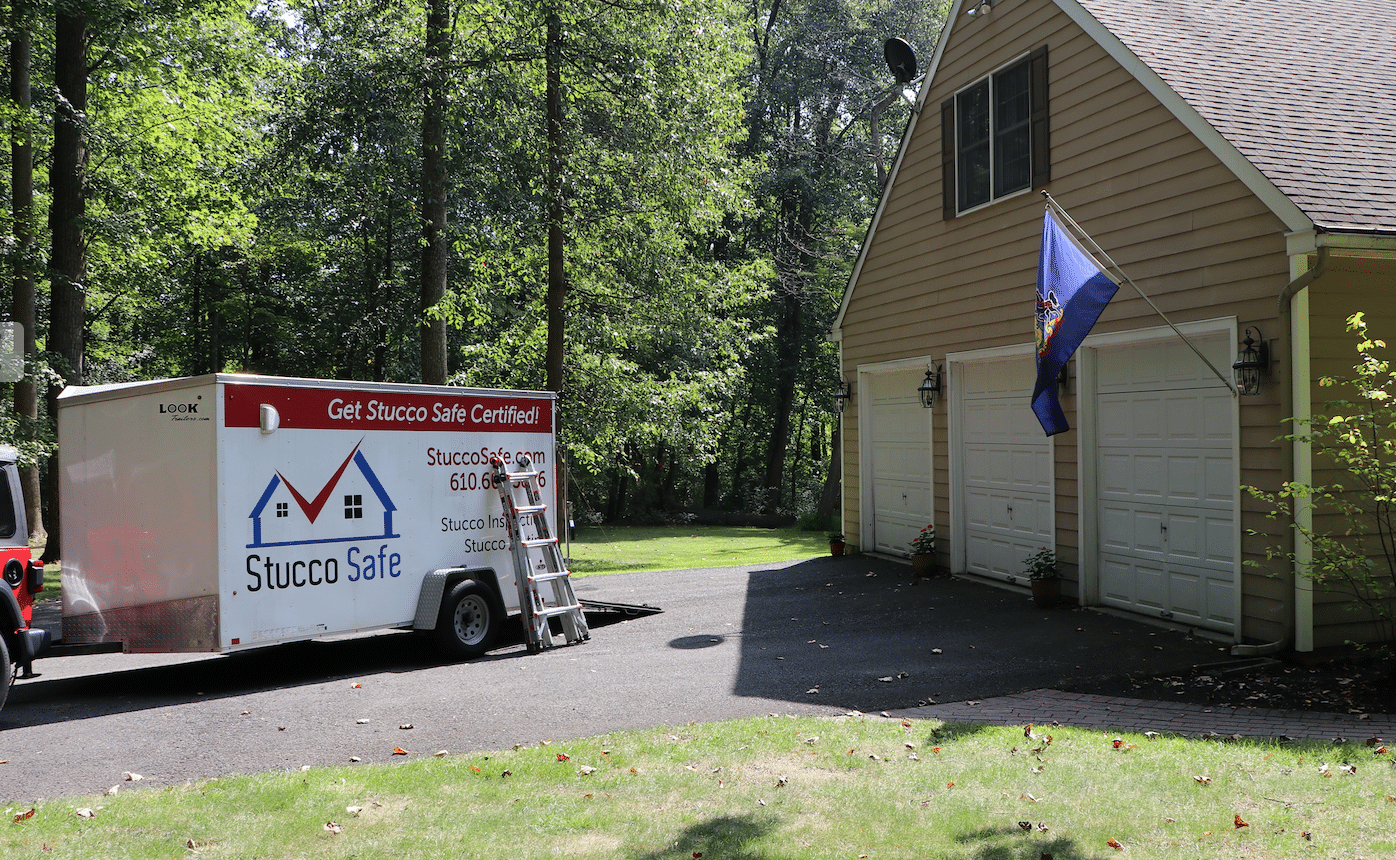
Choosing a qualified stucco inspector is crucial to ensuring the accuracy and effectiveness of the inspection. When selecting an inspector, consider the following factors:
-
Experience: Look for inspectors with experience in inspecting both commercial and residential stucco construction.
-
Certification: Ensure that the inspector is certified by a reputable organization, such as the EDI.
-
Knowledge: Verify that the inspector has knowledge of EIFS (Exterior Insulation and Finish System) and ACMV (Acrylic Coating and Moisture Vapor).
-
Reviews: Research and read reviews from previous clients to ensure that the inspector has a good reputation and provides high-quality services.
By following these guidelines, homeowners and property owners can ensure that their stucco system is properly inspected and maintained, reducing the risk of costly repairs and ensuring the longevity of their stucco facade.
Why Stucco Safe is Philadelphia’s Top Stucco Inspection Company
For homeowners in Philadelphia, PA, Stucco Safe is the trusted name in stucco inspection. Here’s why:
-
Expertise: Stucco Safe’s inspectors are highly trained and experienced in identifying even the most hidden signs of stucco failure.
-
Comprehensive Assessments: The company uses state-of-the-art tools and techniques to provide a detailed analysis of your stucco system.
-
Transparency: Homeowners receive a thorough report outlining findings, complete with photos and recommendations for repairs if needed.
-
Local Knowledge: Stucco Safe’s team understands the unique challenges posed by Philadelphia’s climate and architectural styles.
-
Customer Satisfaction: With a reputation for professionalism and reliability, Stucco Safe has earned glowing reviews from satisfied clients.
Choosing Stucco Safe ensures that your home’s stucco system is thoroughly evaluated, giving you the confidence to address issues before they escalate.
The Consequences of Ignoring Stucco Issues
Failing to address leaking stucco systems can have far-reaching consequences:
-
Structural Damage: Prolonged moisture intrusion weakens the home’s structural components, leading to costly repairs.
-
Health Risks: Mold and mildew caused by water damage can lead to respiratory problems and other health issues.
-
Decreased Property Value: A home with a compromised stucco system is less appealing to buyers and may result in lower resale value.
-
Increased Energy Costs: Water intrusion can affect insulation, making it harder to regulate indoor temperatures.
Preventing Stucco Failures
While stucco inspections are crucial for identifying existing issues, homeowners can also take preventative measures to protect their homes:
-
Regular Maintenance: Inspect your home’s exterior for cracks and address them promptly.
-
Seal Windows and Doors: Ensure all openings are properly sealed to prevent water penetration.
-
Gutter Maintenance: Keep gutters and downspouts clean and direct water away from the home.
-
Professional Inspections: Schedule periodic stucco inspections with Stucco Safe to catch potential problems early.
Conclusion
Leaking stucco systems are a pervasive problem in Philadelphia, with an estimated 50% of homes affected. The only way to know if your stucco system is compromised is through professional inspection. Stucco Safe, the top stucco inspection company in the Philadelphia area, offers comprehensive evaluations to help homeowners address issues before they escalate.
Don’t leave your home’s integrity to chance. Contact Stucco Safe today to schedule an inspection and protect your investment for years to come.

